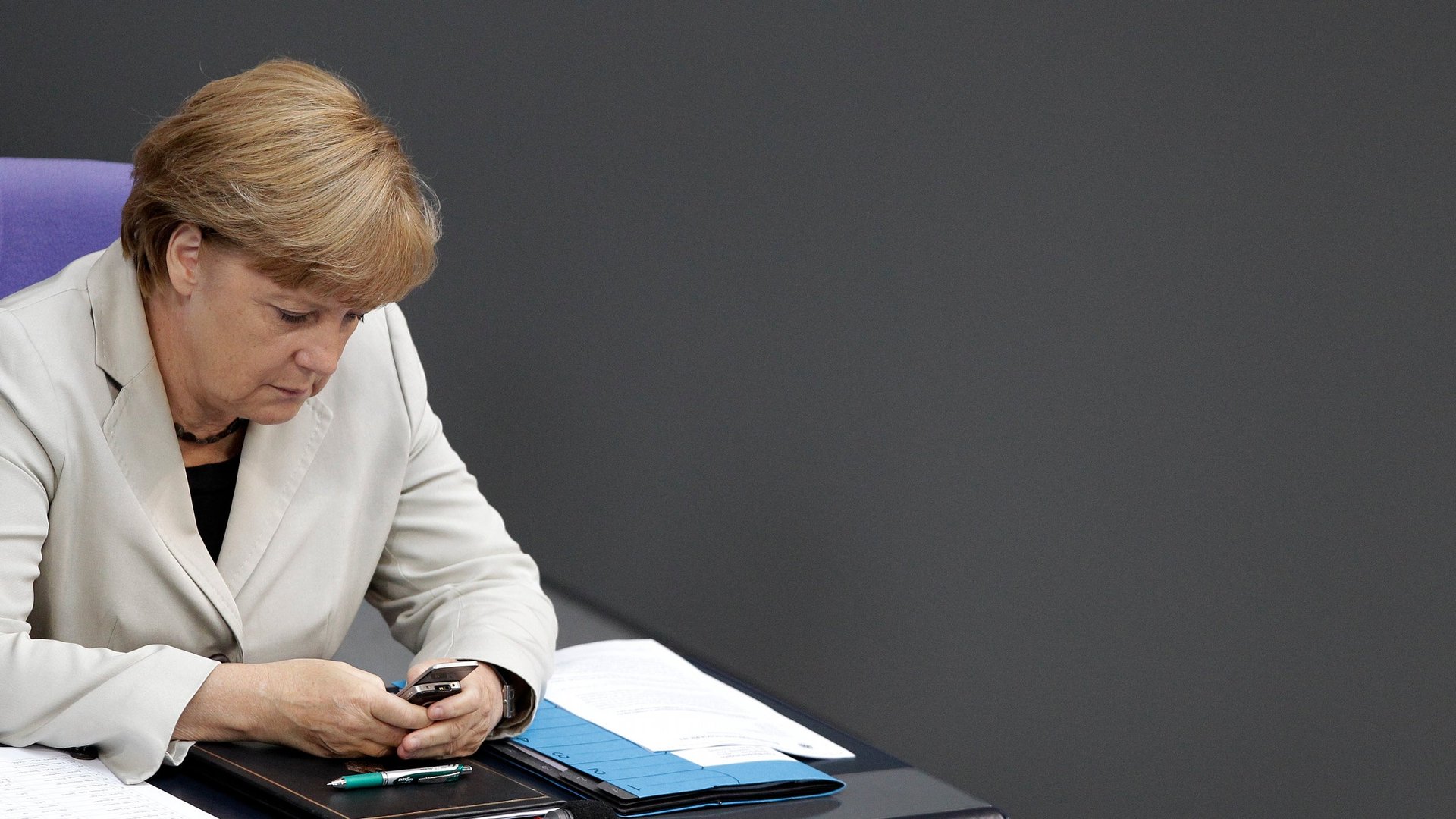Angela Merkel’s Monday morning to-do list
Despite her historic election victory yesterday, Angela Merkel has little time to celebrate her third term as German chancellor. From the demands of fueling a nascent economic recovery at home to pleas for support from other euro members, here’s a quick tally of her post-election to-do list as of Monday morning:


Despite her historic election victory yesterday, Angela Merkel has little time to celebrate her third term as German chancellor. From the demands of fueling a nascent economic recovery at home to pleas for support from other euro members, here’s a quick tally of her post-election to-do list as of Monday morning:
1. Keep Germany’s recovery rolling
An encouraging purchasing managers’ index released this morning points to continued recovery in Germany. Analysts also expect another rise in the important Ifo gauge of business sentiment tomorrow, further evidence that Europe’s largest economy is steadily, if slowly, improving. Keeping all of these indicators pointing in the right direction—particularly in the export-oriented manufacturing sector—will be crucial to gaining the leverage needed to build a domestic coalition, and to defend German interests with EU and euro zone partners.
2. Find a coalition partner
A “grand coalition” with the Social Democratic Party (SPD) is the likeliest route to a governing majority, but the talks won’t be easy. In 2005, it took nearly a month for a similar coalition to name Merkel chancellor, with official confirmation coming two months after the election. SPD officials are publicly cool to the idea of another coalition, but a flat-out refusal to join the government could result in a stalemate, triggering another election that Merkel would probably win by an even larger margin. Merkel said today that she has already reached out to the SPD, but formal talks must wait until the party’s leaders meet at the end of this week to devise a negotiating strategy.
An intriguing if far-fetched possibility for Merkel is a coalition with the Green Party, which would command a majority of 374 seats in the 630-seat parliament. Merkel’s abrupt about-face on nuclear power following the Fukushima disaster brought her closer to the Greens, who have also supported Merkel’s European policies throughout the crisis, but the party’s position on taxes and other issues make them unnatural bedfellows.
3. Shore up the base
Merkel’s own party will be emboldened by the election results, and in no mood to compromise with rivals. The Bavarian sister party of Merkel’s Christian Democratic Union, Christian Social Union, has knocked heads with the chancellor over pet policies like a special tax on foreign drivers passing through Germany. Keeping factions of her own party on board as she negotiates a new coalition agreement will be every bit as difficult as dealing with the opposition.
4. Deal with restive euro members
The long list of euro zone business put off by the German election campaign may be delayed for another month or two at least while Merkel seeks a coalition partner. This will frustrate those who have already waited months, if not years, to press ahead with reforms like a European banking union or further debt relief for troubled euro members. Mutterings by anonymous government sources to the media, like this Irish official today who hopes for a “renewed focus” on the country’s bank bailouts as a result of the German election, are also playing out in the pages of Greek, Spanish and other newspapers across the euro zone. These countries’ leaders will express their congratulations to Merkel in one breath while urging her to act on long-delayed proposals in the next.